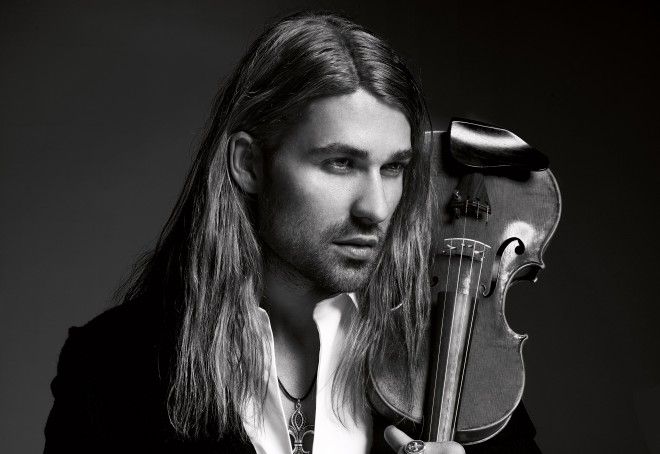Post by san⋅guine on May 23, 2015 10:47:31 GMT -5

Name: Niccolò Paganini
Alias: David Garrett, David Christian Bongartz
Clan: Toreador
Sect: Camrilla/Independent
Sire: Amarantha
Parents: Antonio and Teresa (née Bocciardo) Paganini
Sibling(s): Third of the six children
Children: Nikolas Adam
Love Interest: Amelia Valorn
Past Relationship(s): --
Crushes: Amarantha, Gabriella Wilde, Salianna Merovingian, Stasya Marchenko, Ondrea
Childer(s): Nikolas Garrett, Ana Kievan, Leo Tolstoy, Jinxx
Ghoul(s): Margo Wilde (former)
Year Born: October 27, 1782
Year Embraced: 1816
Years in Torpor: Multiple and scattered due to time jump.
Heritage: Italian
Place of Birth: Genoa, Italy
Residence: Genoa, Agricola
Height: 6'7"
Weight: 278 lbs
Hair Color: Blonde
Eye Color: Hazel
Distinguishing Feature(s): High cheekbones. Lustrous Hair. Full voluptuous lips. Golden skin.

Occupation: Violinist, Composer, Sculptor, Model, Painter, Prince of Genoa
Properties: --
Art Form: Expression
Animal Form: White Wolf and White Falcon
Disciplines: Presence, Auspex, Celerity
Out of Clan: Potence, Fortitude, Dominate, Animalism, Protean, Obfuscate, Chimestry
Merits: Enchanting Voice, Sanctity, Blush of Health, Unnatural Beauty
Flaws: Deep Sleeper, Marfan Syndrome, Tuberculosis, Syphilis
Personality: Intelligent, Passionate, Intense, Brave, Clever, Empathetic, Creative, Adventurous, Sensual
Brief History: Niccolò Paganini was born in Genoa, then capital of the Republic of Genoa, the third of the six children of Antonio and Teresa (née Bocciardo) Paganini. Paganini's father was an unsuccessful trader, but he managed to supplement his income through playing music on the mandolin. At the age of five, Paganini started learning the mandolin from his father, and moved to the violin by the age of seven. His musical talents were quickly recognized, earning him numerous scholarships for violin lessons. The young Paganini studied under various local violinists, including Giovanni Servetto and Giacomo Costa, but his progress quickly outpaced their abilities. Paganini and his father then traveled to Parma to seek further guidance from Alessandro Rolla. But upon listening to Paganini's playing, Rolla immediately referred him to his own teacher, Ferdinando Paer and, later, Paer's own teacher, Gasparo Ghiretti. Though Paganini did not stay long with Paer or Ghiretti, the two had considerable influence on his composition style.
The French invaded northern Italy in March 1796, and Genoa was not spared. The Paganinis sought refuge in their country property in Romairone, near Bolzaneto. By 1800, Paganini and his father traveled to Livorno, where Paganini played in concerts and his father resumed his maritime work. In 1801, the 18-year-old Paganini was appointed first violin of the Republic of Lucca, but a substantial portion of his income came from freelancing. His fame as a violinist was matched only by his reputation as a gambler and womanizer.
In 1805, Lucca was annexed by Napoleonic France, and the region was ceded to Napoleon's sister, Elisa Baciocchi. Paganini became a violinist for the Baciocchi court, while giving private lessons to her husband, Felice. In 1807, Baciocchi became the Grand Duchess of Tuscany and her court was transferred to Florence. Paganini was part of the entourage, but, towards the end of 1809, he left Baciocchi to resume his freelance career.
For the next few years, Paganini returned to touring in the areas surrounding Parma and Genoa. Though he was very popular with the local audience, he was still not very well known in the rest of Europe. His first break came from an 1813 concert at La Scala in Milan. The concert was a great success. As a result, Paganini began to attract the attention of other prominent, albeit more conservative, musicians across Europe. His early encounters with Charles Philippe Lafont and Louis Spohr created intense rivalry. His concert activities, however, were still limited to Italy for the next few years.
His fame spread across Europe with a concert tour that started in Vienna in August 1828, stopping in every major European city in Germany, Poland, and Bohemia until February 1831 in Strasbourg. This was followed by tours in Paris and Britain. His technical ability and his willingness to display it received much critical acclaim. In addition to his own compositions, theme and variations being the most popular, Paganini also performed modified versions of works (primarily concertos) written by his early contemporaries, such as Rodolphe Kreutzer and Giovanni Battista Viotti.

Theme(s):

